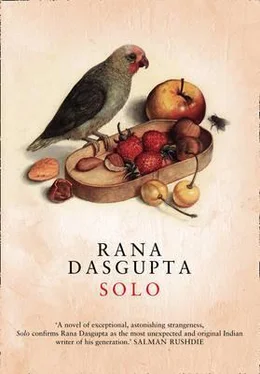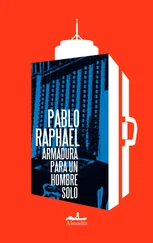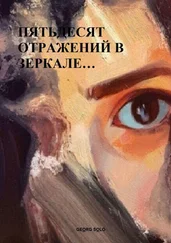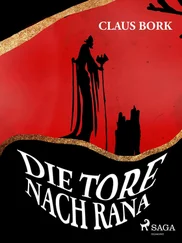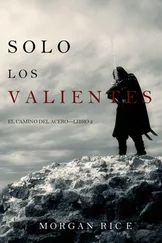‘Obviously Atanas wasn’t happy. He and I went to war. Sometimes we beat each other through the night, until we had no more strength, and when Maria came in the morning our eyes were swollen like footballs. But after a while he realised he had lost her. He gave up hope in everything, and became like a pathetic animal. He slunk away to his corner when she came, so we could have space for ourselves. In a while he grew sick and died. Maria and I had our wedding in the prison. We have two little boys.’
He smiled fondly. He wore an impressive suit and the kind of steel glasses that were in fashion then.
‘Now her mother, who used to wear fur coats and drive sports cars, is getting a taste of how her workers lived. She comes to our front door to beg for cooking oil. A few years ago she was too good to even talk to her daughter. Now she begs us for soap.’
He exuded contentment.
‘Nineteen years in jail,’ he said, ‘and now I have to make up the time. We’re going to drive this country into socialism in twenty years, so it arrives while you and I have eyes to see it. You can already see the dams and factories we’re building. Todor Zhivkov is more ambitious than Georgi Dimitrov, and there will be no compromises. One day you’ll see the paradise we’ll make, and you’ll understand what all the fervour was for.’
The café was full of people, but the voices were measured and subdued. The laughter was appropriate. Every table had its maroon tablecloth and its starched white napkins.
‘You don’t know the challenges we face. People don’t want to work. Unfortunately, there are many who become sick and envious. They see beauty and achievement as black spots.’
He threw up his shoulders resignedly and sighed, taking a gulp of wine.
‘Anyway. What have you been up to?’
Ulrich told him about the factory. Georgi nodded distractedly. Ulrich felt out of place in this café, this conversation.
‘My mother,’ he began. ‘My mother was taken to Bosna. I don’t even know if she’s alive any more.’
‘Your mother?’ Georgi’s eyes narrowed.
‘She’s innocent!’ said Ulrich urgently. ‘She always had an amateur interest in politics. She mixed with the wrong people, she was confused, she didn’t know what she was saying. But she always opposed the fascists. She always wanted what was best for Bulgaria. She loved Boris. She never stopped cursing the king for what he did to him.’
Georgi observed Ulrich wrestling with himself. He said,
‘There are many enemies of the Fatherland. You don’t know how riddled this country is. We’ve been forced to send out a clear message.’
Ulrich whispered,
‘I have heard about the labour camps. She is old. She cannot survive it. She cannot break stones. She will die.’
Georgi continued to watch him, unblinking. Suddenly Ulrich flung himself on the floor, and held Georgi’s knee to his cheek.
‘I beg you. Find out what has happened to her!’ He did not dare look up at Georgi’s face. ‘She is an old woman. What harm can she do?’
There was a lull in the café while people looked on. Ulrich kept his arms clutched tightly around Georgi’s leg. Georgi tried to retain his dignity.
‘There is nothing I can do.’
‘I beg you,’ said Ulrich, still on the floor. ‘In the name of our friend. I will do anything in return. Anything. If you want me to take her place.’
Georgi mopped his mouth with his linen napkin.
‘In the name of our friend,’ he repeated.
Later, Ulrich heard the rumours about Georgi: that he had been exceptionally vicious in his revenges. It was said that he had hunted down his old enemies and shot them with his own hand. But there were many rumours like that during those times, and it was not easy to pick out the truth.
17
LATE ONE NIGHT, Ulrich’s mother appeared at the front door. Ulrich did not recognise her at first. She was half her previous size, and her hair was white stubble. She had terrible rashes on her face.
‘Ulrich?’ she said, hiding behind her hands. She seemed terrified of him.
He let out a cry and pulled her to his chest, his sobs erupting. She fainted in his arms, and he carried her inside. She was dressed in peasant clothes, and she was weightless, like a woman of straw. He roused her with water.
He brought her bread to eat. She took two mouthfuls and collapsed, clutching her stomach. She writhed with the pain and he massaged her hollowed abdomen, weeping with fear.
When it had passed, he went to bring a shawl, for she was shivering. By the time he returned she had fallen into a dead sleep.
Ulrich stayed at home to take care of her. Elizaveta lay on the sofa, watching him moving in the house, and covering her swollen face for shame. It was two days before she could speak.
She said,
‘Where is Karim?’
‘He’s dead.’
She nodded, as if she had known it.
‘Anyway, I have grown afraid of dogs.’
She had been plucked out of the fields and released from the camp, without any forewarning. They had told her that the public prosecutor had intervened on her behalf, and they had left her by the side of the road.
‘I would have died if it weren’t for the peasants who helped me. The people in the town threw stones at me.’ She was weeping. ‘In our country, only the ignorant still know how to be human and decent. They were saints. They saved my life.’
Ulrich could not look at his mother while she said these things. He did not sit down, but paced between the walls.
‘Someone should pay for this,’ he said.
‘I am here with you,’ she said. ‘We should be grateful for that.’
His face was baleful. She said gently,
‘You can’t ask anyone to pay back the life they have taken. Neither kings nor dictators have that power.’
She was silent for a long time.
‘I didn’t speak while I was away,’ she said. ‘All the trouble was caused by words. The best chance I had of seeing your face again was to say nothing at all.’
They were gentler with each other than before. It came to each of them to wake up, sometimes, screaming in the night, and these submerged agonies were a form of silent compact. There were things they could never share with anyone else. Elizaveta had become politically contagious, and old friends now crossed the street to avoid her. She often mused about the ones who had fled to the camps in Austria and Italy after the war, and now were in America.
‘We should have gone as well. We could have made another life. We could have found your son. I was too proud, and I thought there would always be time.’
Their neighbour from upstairs dropped enough comments to ensure their fear did not subside too far. He knocked on the door of an evening to observe how they were occupied, and to offer his advice.
‘Yesterday I noticed you had a letter returned from America? Some of your phrases were hardly complimentary to our socialist nation. We all have to decide which side we are on.’
He spoke in a strange, sententious style, and took the liberty of lifting up a book from the table to glance over the papers piled underneath. Ulrich did not speak to him, but stared at the door with hatred until he had closed it behind him.
One day, Elizaveta asked Ulrich to join the party.
‘I will not,’ he said grimly.
It was a Sunday afternoon, and they were walking in the park.
‘You must protect yourself,’ she said. ‘Your mother is an enemy of the state. There’s no place for subtle considerations.’
Ulrich signalled to her to keep her voice down, as if someone were listening. He said,
‘I don’t want to discuss it. After everything they have done to you, Mother.’
They walked on, her arm through his. She said,
Читать дальше
Конец ознакомительного отрывка
Купить книгу
